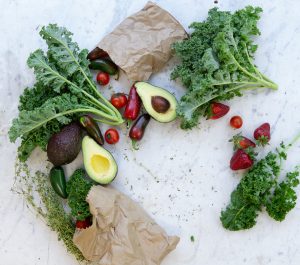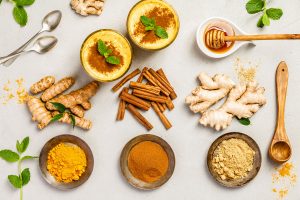Ever wondered what antioxidants really are and what they do in the body? Read on for everything you need to know about antioxidants, free radicals, the ORAC scale, and antioxidant-rich foods and supplements.
What is an antioxidant?
 Simply put, an antioxidant is a substance that works hard to protect your body against free radical damage and oxidation. Free radicals are formed from exposure to pollutants like cigarette smoke, pollution, and even sunlight – but they are also an entirely natural by-product generated inside the body from healthy processes like digestion and exercise.
Simply put, an antioxidant is a substance that works hard to protect your body against free radical damage and oxidation. Free radicals are formed from exposure to pollutants like cigarette smoke, pollution, and even sunlight – but they are also an entirely natural by-product generated inside the body from healthy processes like digestion and exercise.
Your cells are vulnerable to free radicals. Studies have demonstrated that free radical damage maybe be linked to heart disease, atherosclerosis and other chronic health conditions. Antioxidants, on the other hand, may help prevent and reverse this damage.
How do free radicals affect our body?
Free radicals and oxidative stress alter lipids, proteins, and DNA, leading to a host of possible health issues along with rapid aging. Since free radicals contain an unpaired electron, they act in unstable and highly reactive ways. Free radical damage impairs the cells and disrupts homeostasis – the stability and balance within a cell.
Free radicals can be generated by inflammation, exercise, and radiation. Exposure to environmental pollutants, drugs, and pesticides can also cause free radicals. While oxidation is a natural process of living and aging, it can be slowed down by a healthy lifestyle and sufficient antioxidant intake.
How do antioxidants work?
An antioxidant works by giving electrons to free radicals while also helping to repair DNA and maintain the health of cells. Many substances can act as electron-donor antioxidants: the common ones you may have heard of are vitamin C and E, beta-carotene, selenium, manganese, glutathione, co-enzyme Q10, and many more.
Many natural foods are rich in antioxidants, especially whole foods like fruits and vegetables, grains, nuts and seeds. Here is a list of antioxidant-rich foods to get you started:
- Dark leafy greens (e.g. spinach, kale, collard greens)
- Berries (e.g. blueberries, raspberries, blackberries)
- Culinary herbs & spices (e.g. cinnamon, turmeric, oregano)
- Citrus fruits (e.g. grapefruits, mandarins)
- Green tea
These and other food ingredients naturally contain a host of antioxidant compounds such as beta-carotene, flavonoids, lycopene, manganese, polyphenols, and vitamins A, C and E.
The Oxygen Radical Absorbance Capacity (ORAC) scale can be a good assessment tool for seeing which foods score highest and lowest on the antioxidant spectrum. High ORAC score foods include chaga mushroom, açai berry, and cacao beans.
How to boost antioxidant intake?
Even though antioxidants occur naturally in many foods, boosting your intake with an antioxidant supplement can delivery many health benefits. But not all antioxidant supplements are alike. Here’s how to get the most out of your supplement routine:
- Choose a supplement that delivers a synergistic network of antioxidants, rather than a single extract.
- Take your supplement with meals to maximize absorption and bioavailability.
- And finally, don’t rely on supplements only to provide your daily antioxidant needs: load up your diet with whole, fresh foods too.
Need a fact check on some of the most common myths? Check out: Antioxidant Myth Busters








Leave A Comment